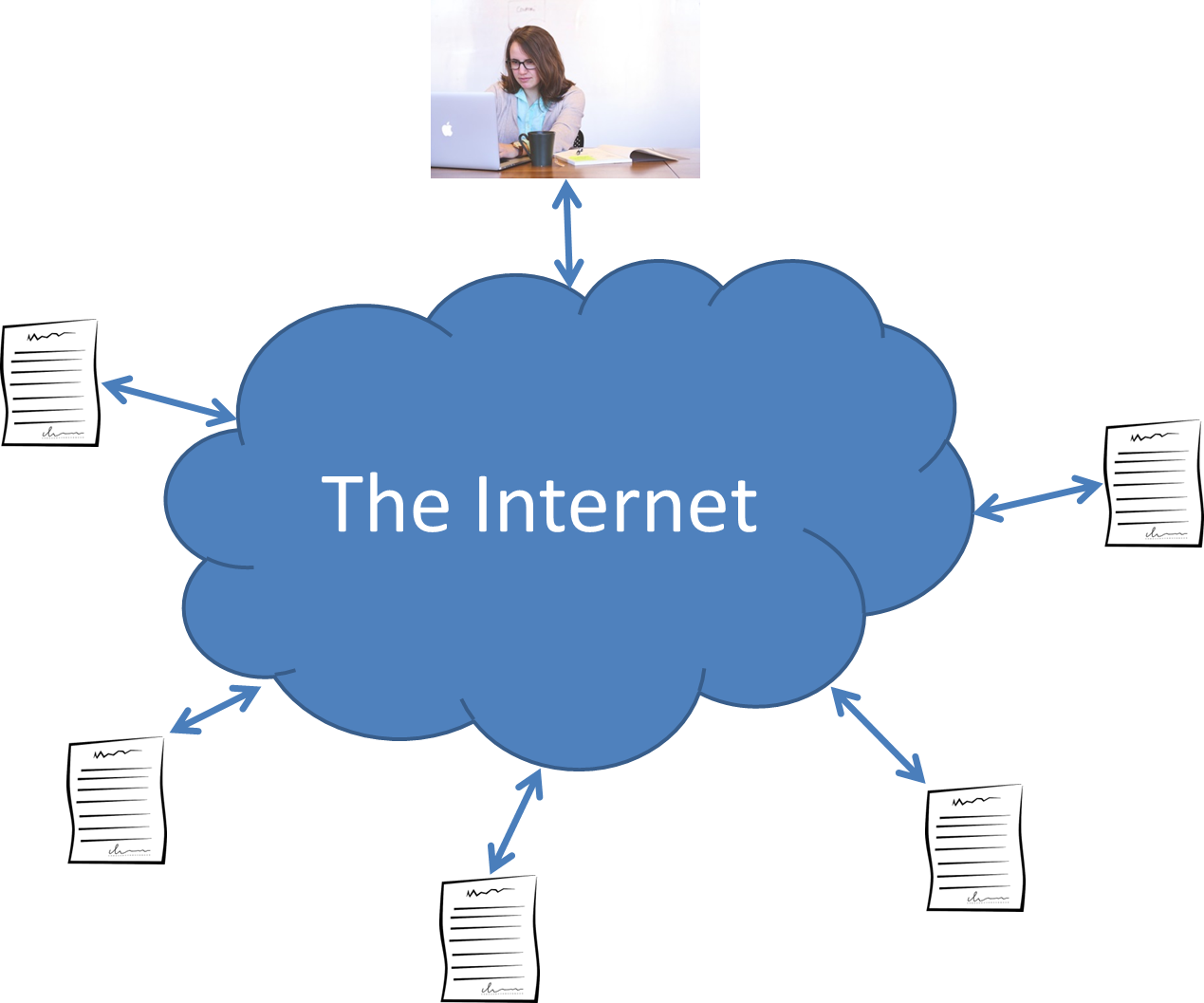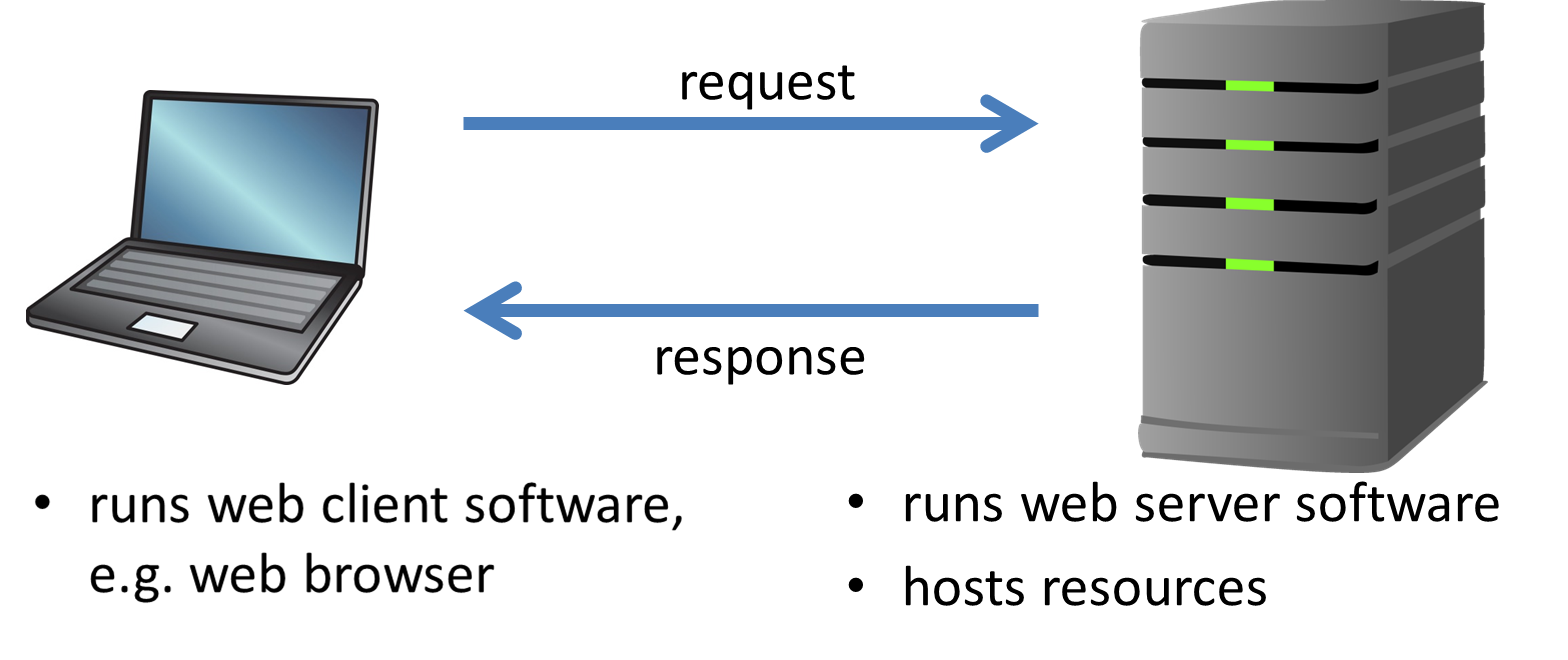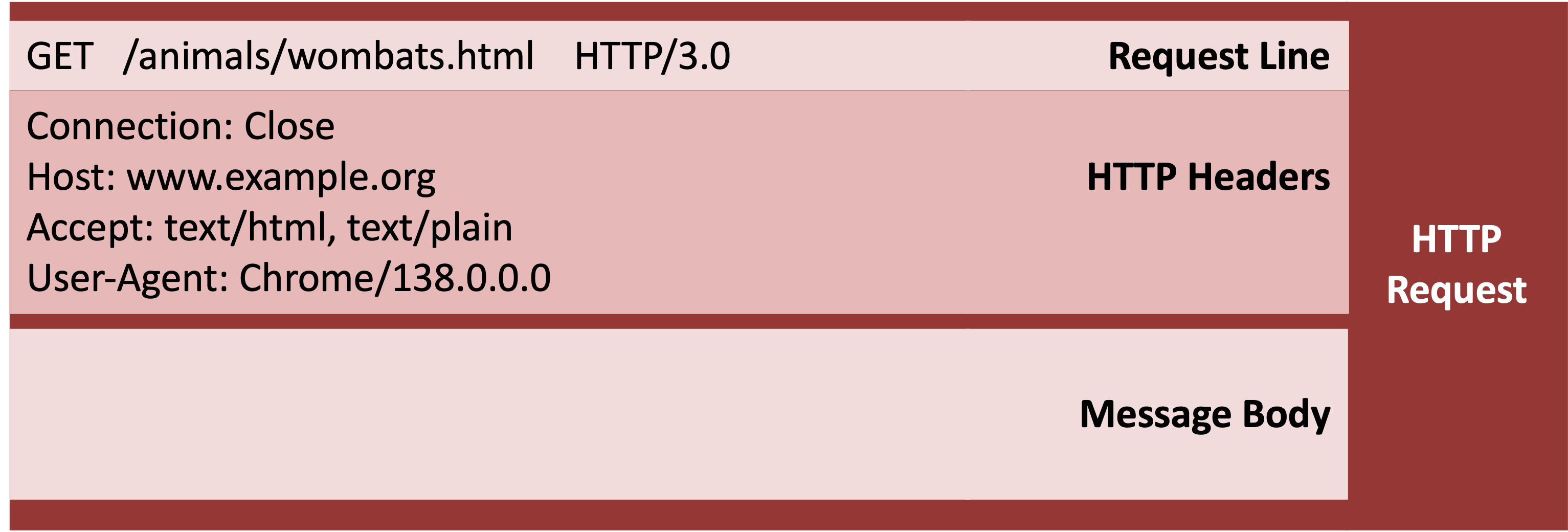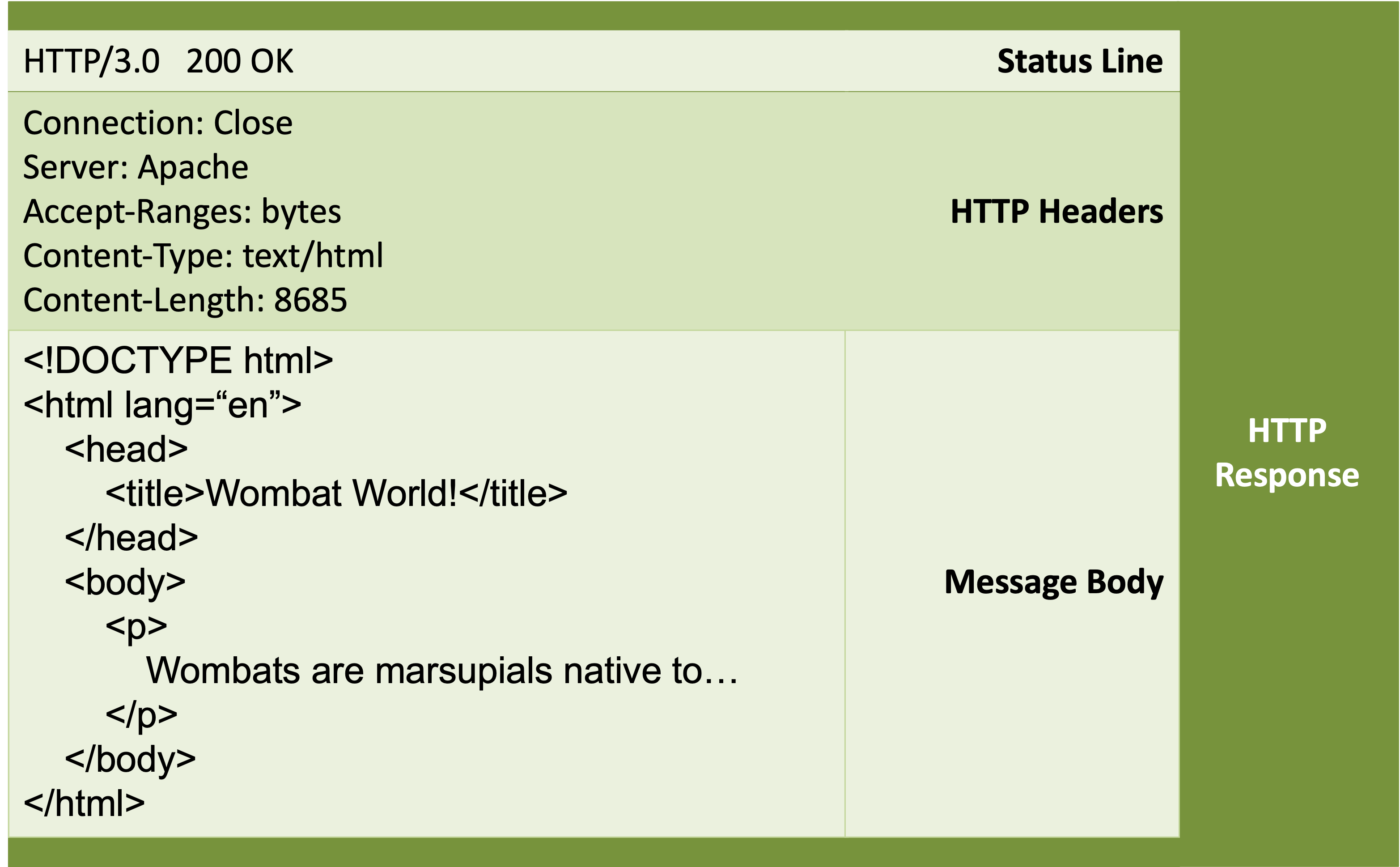Web Development
Dr Derek BridgeSchool of Computer Science & Information Technology
University College Cork
Lecture Objectives
- learn how the module will be taught & examined
- learn what a client-server architecture is
- learn what a communications protocol, such as HTTP, is
Web Development I and II
| Module codes: |
CS1115/CS5002 Web Development I CS1116/CS5018 Web Development II |
|---|---|
| Credit weighting: | 5 credits each |
Derek Bridge
Senior Lecturer in Computer Science
+
Artificial Intelligence researcher
Module Objectives
you will acquire competence in web development
you will build a portfolio of projects
you will develop as a critical thinker/problem-solver and as an independent learner
Module Delivery
| On-campus lectures | Tuesdays @ 12 noon, WGB 107, starting 16th Sept |
|---|---|
| Thursdays @ 3pm, WGB G05 | |
| On-campus lab |
Thursdays 12 noon - 2pm, WGB 110 (Wait for an announcement of their start date) |
| Private study | At least 3 hrs per week |
"Is there a book?"
There's no book.

Use the web!
especially developer.mozilla.org

"What about software?"

VSCode
(with some extensions)

Chrome web browser
Assessment: Web Development I
| Examination: | 1.5 hr in-person exam (75% of the marks) |
|---|---|
| Continuous assessment: | Web site project (25% of the marks) |
| How to fail: | Skip lectures & labs; avoid private study; cram the night before the exam; expect the exam to be a memory test |
| How to pass: | Attend lectures & labs; take notes; organize your notes; tackle the lab activities properly; expect a problem-solving exam |
Academic Integrity
Academic misconduct includes
- Poor Academic Practice: Actions that include, but are not limited to, poor academic writing skills (e.g., poor referencing or passing off someone else's idea as your own), or small errors made through carelessness or misunderstanding.
- Cheating: Actions that attempt to get advantage by means that undermine values of integrity.
- Contract Cheating / Essay Mills: A form of academic misconduct where a person uses an undeclared and/or unauthorised third party, online or directly, to assist them in dishonestly producing work for academic credit or progression, whether or not payment or other favour is involved.
- Cumulation effect: Where continued poor academic practice and repeated minor instances of academic misconduct are treated as a case of major academic misconduct.
- Fabrication/Falsification: Making up data, experiments, or other significant information in proposing, conducting, or reporting research. This includes the fabrication or falsification of official University documents regarding credit and/or academic achievement.
- Impersonation: Undertaking in whole or in part any work required as part of a programme in the place of an enrolled learner, without permission from the provider.
- Unethical Use of Generative Artificial Intelligence (GenAI): Generative Artificial Intelligence (GenAI) refers to a subset of artificial intelligence (AI) that uses algorithms and models trained on massive datasets to generate new text, audio, video, code, and more. Academic integrity is breached if students submit the products of GenAI as their own work without acknowledgement and without authorisation to use GenAI in fulfilling the task.
- Plagiarism: Presenting work or ideas taken from other sources without proper acknowledgement, whether done deliberately, carelessly, or inadvertently.
- Other acts that dishonestly use information to gain academic credit.
Plagiarism
Presenting work or ideas taken from other sources without proper acknowledgement, whether done deliberately, carelessly, or inadvertently.
It is a violation of UCC Policy and there are strict and severe penalties.
Types of Plagiarism include but are not limited to:
- Collusion: A joint effort of work is presented by an individual without due recognition of the input of others. Collusion also applies to both parties when an individual student provides their work to another student and allows them to present it as their own.
- Self-plagiarism: The use of one's own previous submitted/presented work in another context without appropriate citation.
- Verbatim plagiarism: Word-for-word copy of work from another source without providing acknowledgement.
You must read and comply with the Academic Integrity for Examinations and Assessments Policy 2025-2026.
The Policy applies to all work submitted, including software.
You can expect that your work will be checked for evidence of plagiarism or collusion.
In some circumstances it may be acceptable to reuse a small amount of work by others, but only if you provide explicit acknowledgement and justification.
If in doubt ask your module lecturer prior to submission. Better safe than sorry!
Reasonable Accommodations for Students Registered with DSS
- The university has a policy to assist students with disabilities.
- A Reasonable Accommodation does not refer to living arrangements. It is a professional term used to explain the range of supports and services available in University College Cork ("UCC") to assist students with disabilities/learning differences/significant ongoing health conditions to fully participate in their studies. In the education sector, Reasonable Accommodations are described as any action that helps alleviate a substantial disadvantage due to a disability/learning difference/significant ongoing health condition. Examples of Reasonable Accommodations can be found in Appendix 3 of the Reasonable Accommodations Policy.
- It is important to point out that the university does not oblige lecturers to record lectures and many do not regard it as the best option to enhance student learning.
- If you require reasonable accommodations, please register with DSS and discuss your situation with your lecturers.
The World Wide Web
aka
The WWW
aka
The Web
The inventor

by Paul Clarke (licenced under CC BY-SA)
WWW = hypertext + the Internet
Hypertext

A hyperlink
The Internet

A network of networks
Tim Berners-Lee's Web

Evolution of the Web
- Web pages (documents)
- Web sites
- Web applications
(web apps)

Technologies
- HTML
- URL
- HTTP
- CSS
- JavaScript
- …
Client-server

Resources

Uniform Resource Locators (URL)
Every resource on the web has a unique address.
| which server | which resource on that server |
|---|---|
| www.example.org | /animals/wombats.html |
Communications Protocols
the rules of communication in computer networking
HyperText Transfer Protocol
HTTP is the protocol for web requests and responses.

The Internet Engineering Task Force (IETF) recently published HTTP/3.0.
HTTP GET Request

Request methods:
GET, POST, HEAD, PUT, DELETE,
CONNECT, OPTIONS, TRACE, PATCH
HTTP Response

HTTP Response Status Codes
| 2XX | Success | e.g. 200 OK |
| 3XX | Redirection | e.g. 301 Moved Permanently |
| 4XX | Client error |
e.g. 400 Bad Request e.g. 403 Forbidden e.g. 404 Not Found |
| 5XX | Server error | e.g. 500 Internal Server Error |